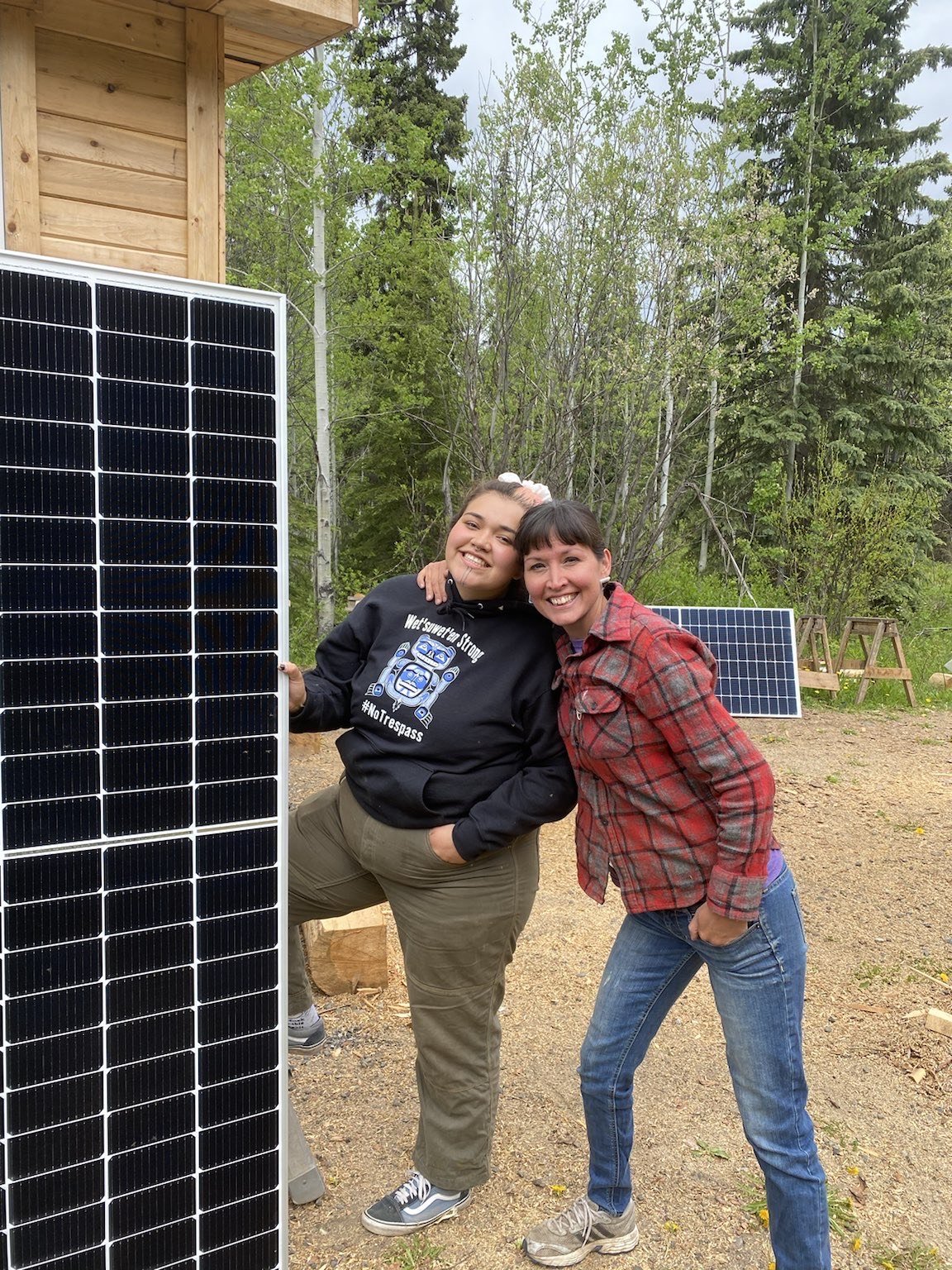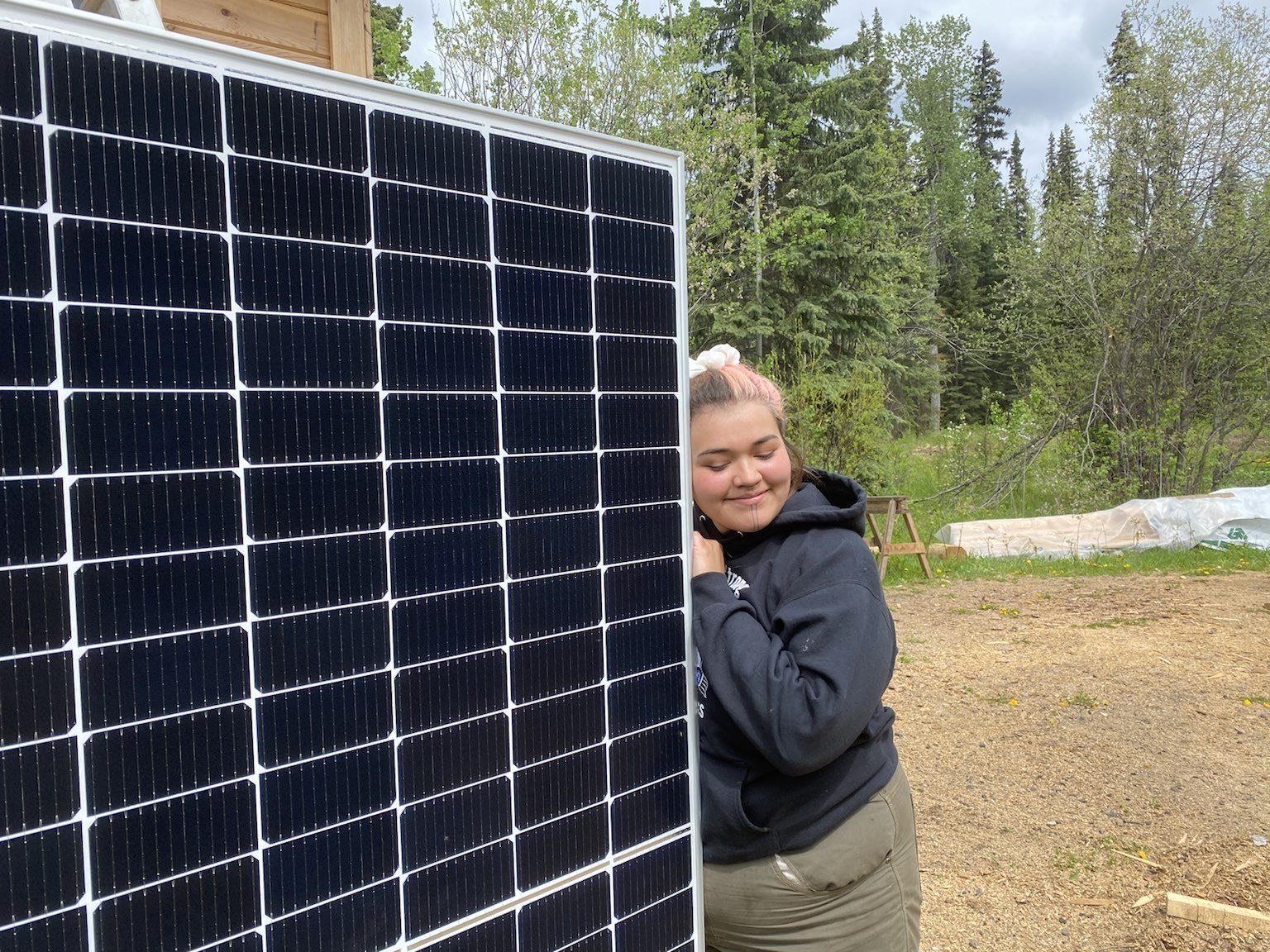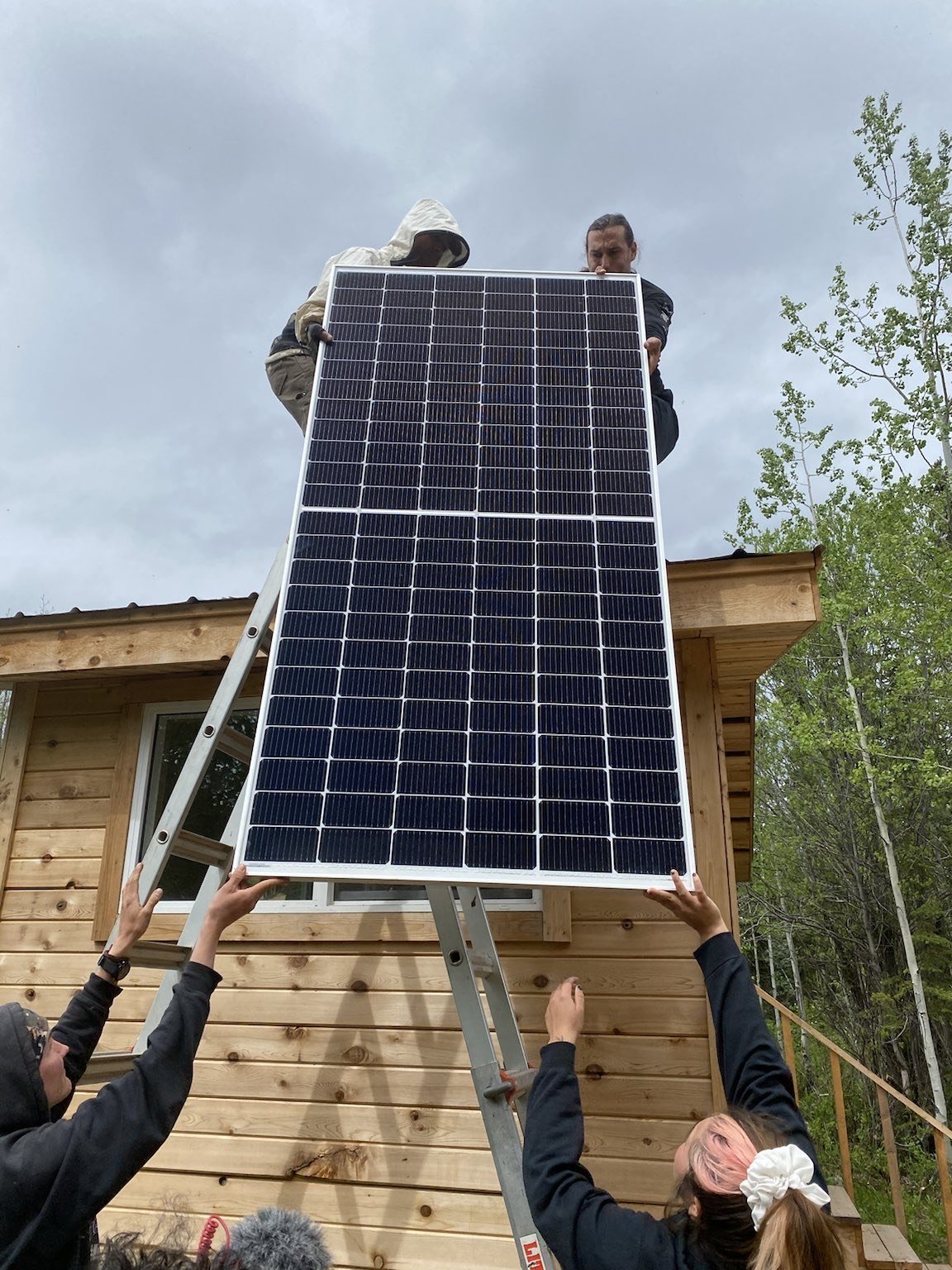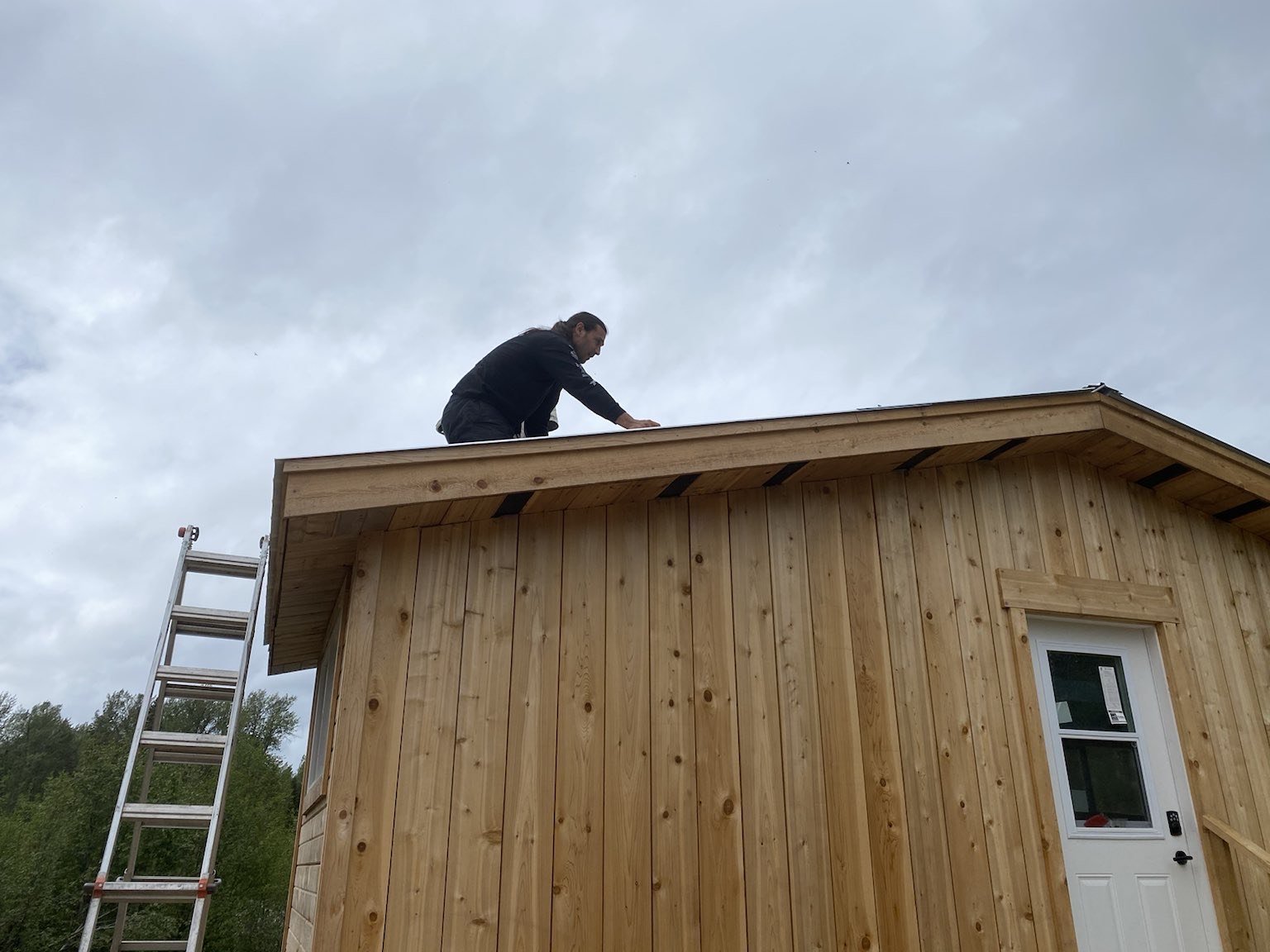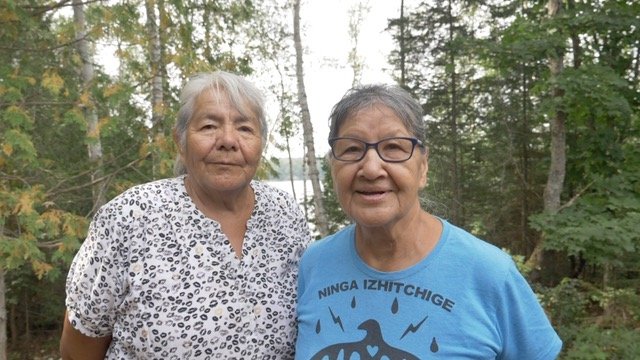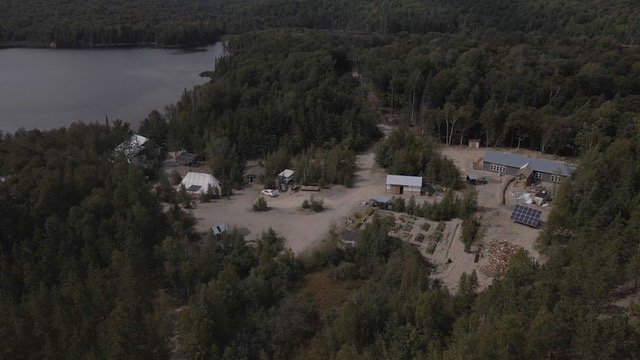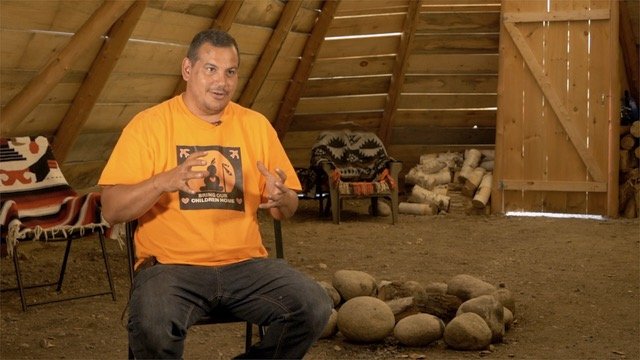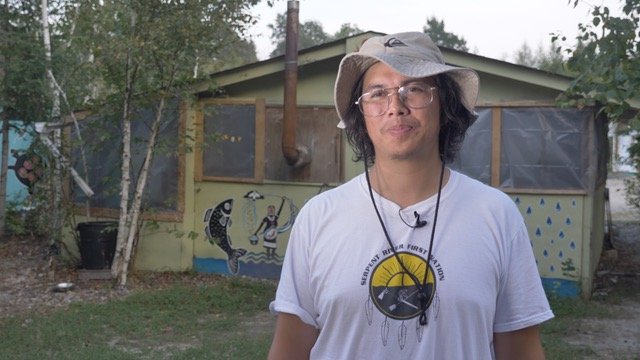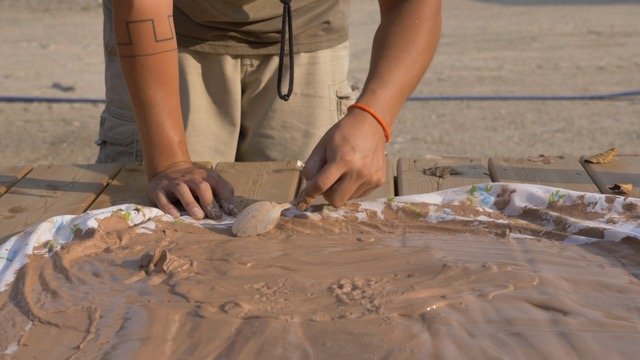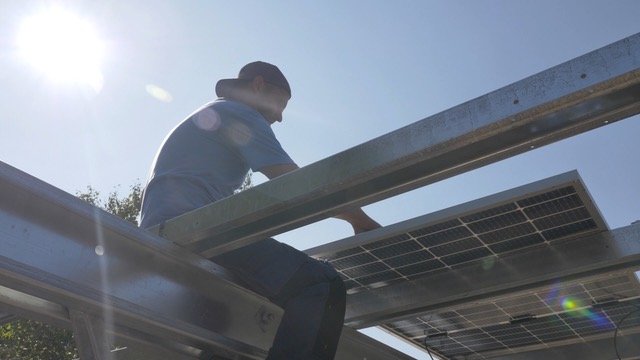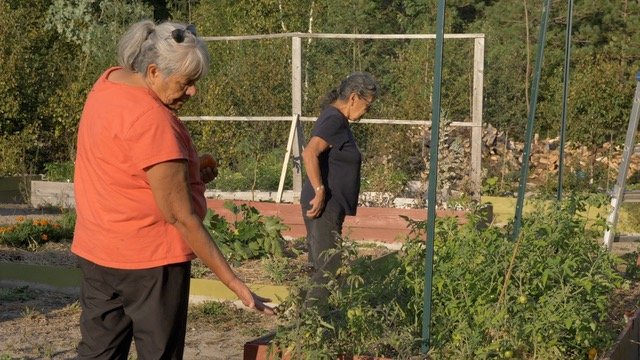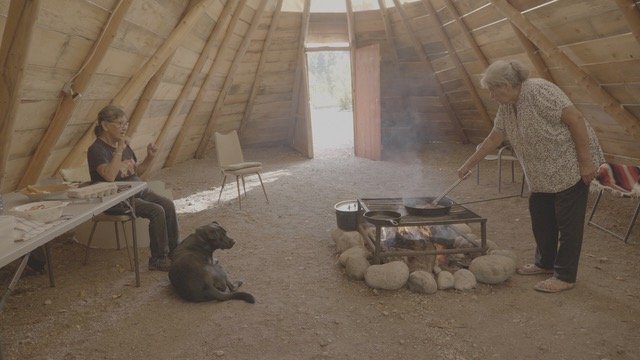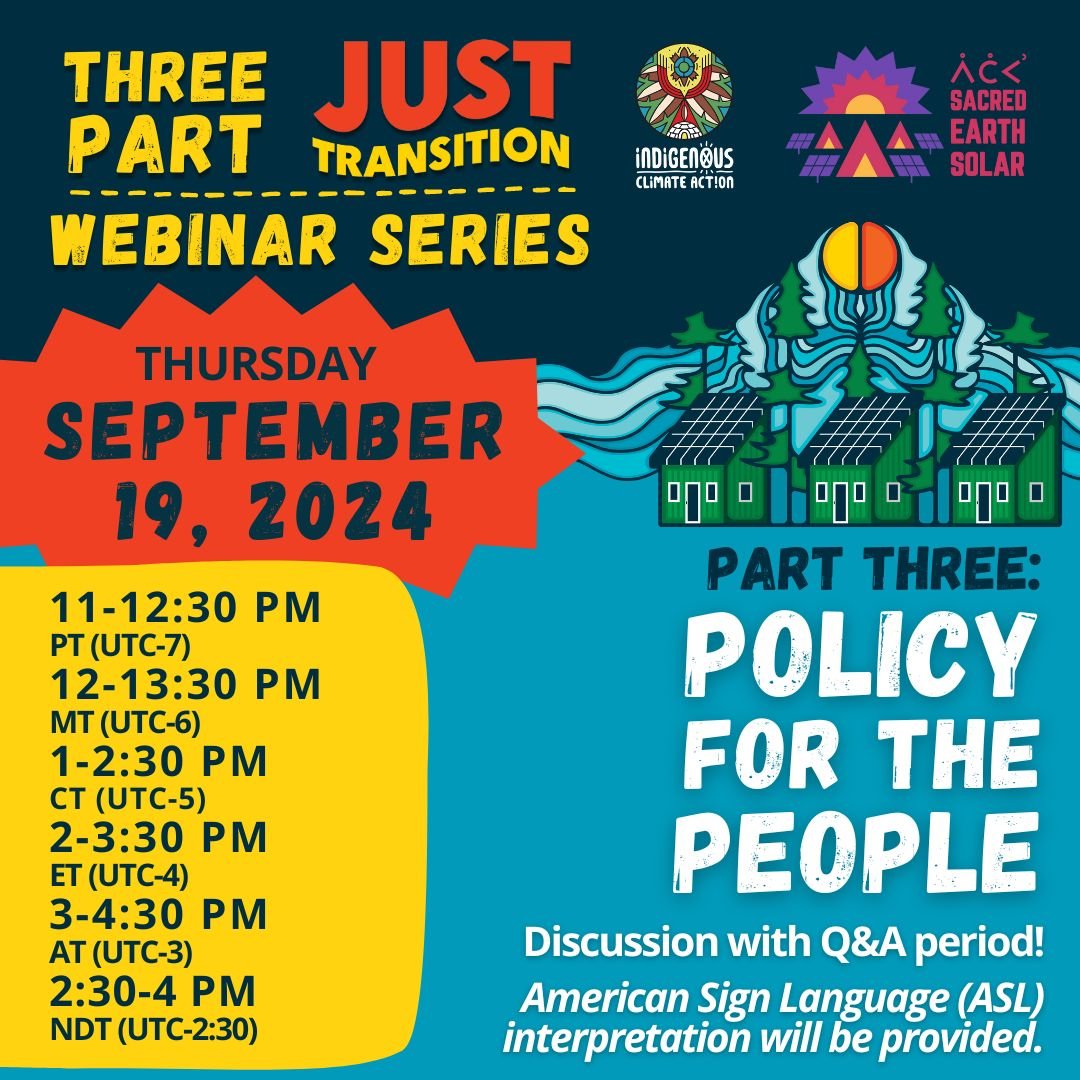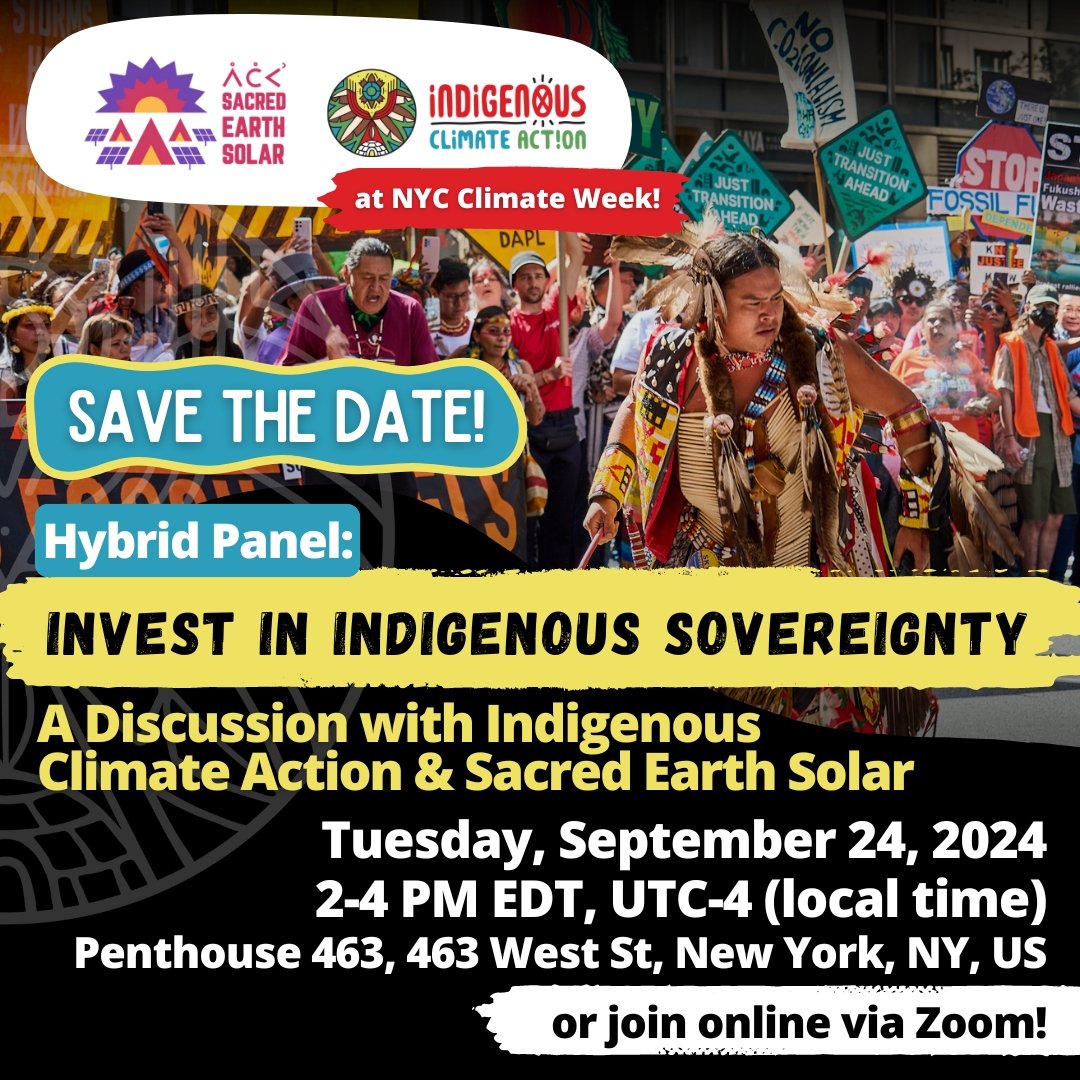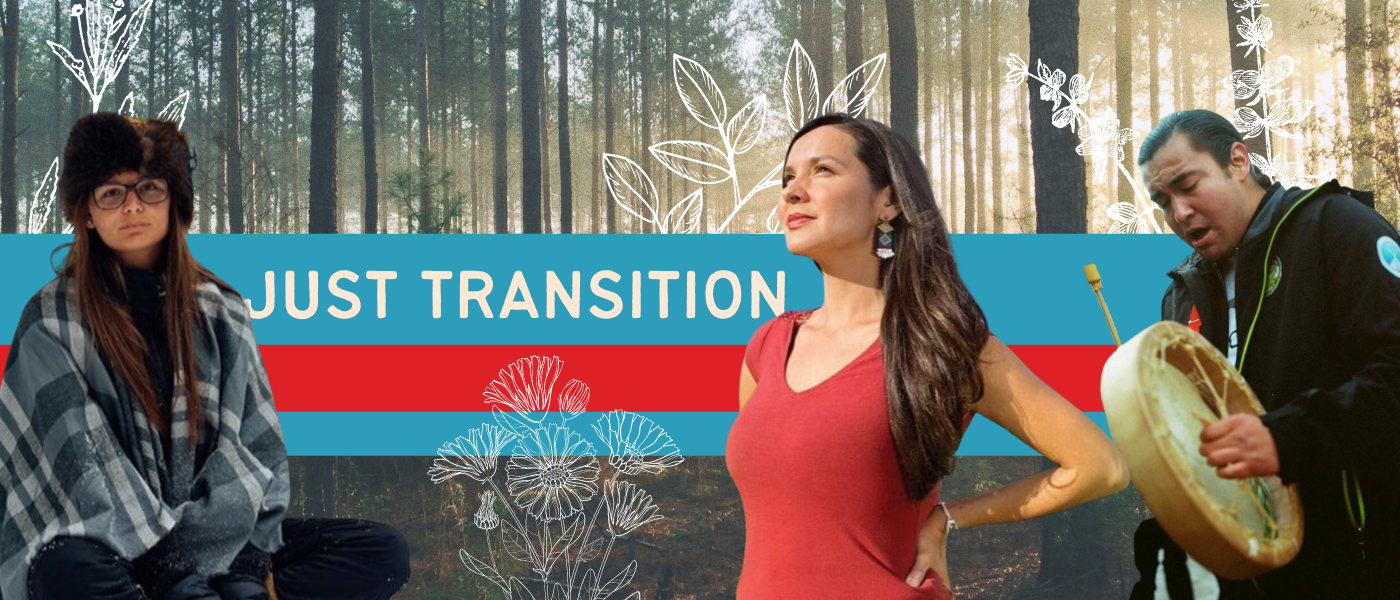
View Our Just Transition Guide!
The Just Transition Guide was created in collaboration with Sacred Earth Solar, Indigenous Climate Action, Power to the People - Produced by Real World Media, and The David Suzuki Foundation.
The Just Transition Guide will take you on a journey into the lived experiences of Indigenous communities across Turtle Island who have faced centuries of colonial oppression, yet continue to act as leaders in the protection of Mother Earth.
Key Lessons
Based on research and interviews with communities across Turtle Island, there are the top 10 lessons that Indigenous communities want to share about their Just Transition journeys:
Colonization
Just Transition Benefits
Energy Conservation
Project Phases
Community Ties
Energy Sovereignty
Beyond Energy
Inclusive Policy
Equitable Policy
Leading Forward
For most of us a Just Transition is a new field to explore ways to bring renewable energy into our communities. However, it's about more than renewable energy, it’s a movement guided through sharing knowledge and telling stories of uplifting our community. We do this through providing navigation systems and resources to our Indigenous people for career development and sustainable livelihood. When we implement renewable projects we enter an agreement with Mother Earth to provide the natural law of that land. By doing this we are listening to Mother Earth and Father Sky to help guide us on which project is best for our community. For example, on Dinetah (Navajo Nation) where water is scarce, wind or solar power might be the more viable option for renewable energy, instead of coal or uranium mining. By applying these principles we are in alignment with the natural laws of Mother Earth and Father Sky. IEN Just Transition Principles
Just Transition began with the trade union movement with the goal of protecting workers’ rights and providing a way to switch industries when economies are changing over to more sustainable practices, while addressing climate change. Just Transition is not set up only for outside communities, it is inclusive to Indigenous communities. Because our communities are at the forefront of climate change, which puts us at a higher risk of natural disaster, the Just Transition movement needs to be at the forefront of our decision making. It encompasses our land management, water usage, air quality, new initiatives, renewable energy projects, careers, educational systems, and traditional practices like ceremonies and celebrations.
A Guide to an Indigenous-led Just Transition
ICA’s Just Transition program is focused on providing Indigenous outlooks and success stories of what a Just Transition can look like from an Indigenous perspective, to inspire communities and Indigenous youth across Turtle Island. We believe that by equipping Indigenous Nations with our new Just Transition Guide, our communities may begin embarking on their very own energy sovereign journey.
“A Just Transition means responding to the need to move away from reliance on diesel and extraction, and instead paving the way to renewable energies that integrate with cultural and traditional values.” - Melina Laboucan-Massimo
NIMKII AAZHIBIKONG

Onaman Collective Solar Project
Onaman Collective’s land based learning camp will assist young people with learning traditional teachings about medicines, land usage, hunting, Indigenous knowledge, and much much more. Indigenous Climate Action is proud to assist in funding the build out of the solar panels within the camp.

Gidimt’en Solar Project
Gidimt’en checkpoint is in Wetsuwet'en Territory, which is on the frontline of keeping their community safe from the RCMP, as the community protects itself from the Coastal GasLink project. ICA is supporting the solarizing of the camp.
